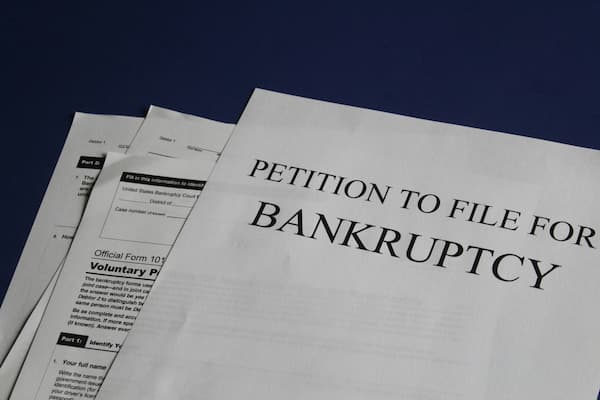Debt Relief vs. Bankruptcy: What’s The Right Move?
Bankruptcy isn’t always easy to face. When you’re struggling with significant debt, the choices often come down to using a debt relief company, or filing for bankruptcy.
Each path offers a distinct approach to managing overwhelming debt, but choosing the right one depends on your specific situation, goals, and the nature of your debts. In this blog, we’ll explore the pros and cons of both options to help you make an informed decision.
What is a debt relief company?
Debt relief companies offer services aimed at reducing your debt through negotiation with creditors. These companies can negotiate lower interest rates, reduced balances, or set up debt management plans on your behalf. They act as intermediaries between you and your creditors with the goal of making your debt more manageable.
Pros of using a debt relief company
- Avoiding Bankruptcy: For those who qualify, debt relief can provide a way to manage debt without the long-term implications of a bankruptcy filing.
- Consolidated Payments: Debt relief programs often consolidate your debts into a single monthly payment, potentially making it easier to manage your finances.
- Lower Debt Amounts: In some cases, debt relief companies can negotiate a reduction in the total amount owed.
Cons of using a debt relief company
- Fees: Debt relief services are not free, and their fees can add up, sometimes detracting significantly from the savings they negotiate for you.
- Impact on Credit Scores: Working with a debt relief company can still negatively impact your credit score, especially if your debts are settled for less than the amount owed.
- No Legal Protection: Unlike bankruptcy, debt relief does not offer legal protection from creditors, meaning collection efforts and lawsuits can still proceed.
Filing for bankruptcy
Bankruptcy is a legal process overseen by federal bankruptcy courts. It’s designed to help individuals and businesses eliminate or repay their debts under the protection of the bankruptcy court. Bankruptcy filings are primarily of two types for individuals: Chapter 7 (liquidation) and Chapter 13 (reorganization).
Pros of filing for bankruptcy
- Immediate Protection: Filing for bankruptcy offers an automatic stay, immediately stopping most creditors from pursuing debt collection or lawsuits.
- Debt Discharge: Bankruptcy can lead to the discharge of unsecured debts, such as credit card debt and medical bills, providing a fresh financial start.
- Structured Repayment Plans: Chapter 13 bankruptcy allows for the creation of a repayment plan to pay off debts over time, without the pressure from creditors.
Cons of filing for bankruptcy
- Long-term Credit Impact: A bankruptcy filing can remain on your credit report for up to 10 years, significantly affecting your ability to obtain credit.
- Public Record: Bankruptcy filings are public records, which can be a concern for individuals worried about privacy.
- Asset Liquidation: In Chapter 7 bankruptcy, some of your assets may be sold to pay off creditors, though exemptions exist to protect essential assets.
How to decide between debt relief & bankruptcy
The decision between seeking help from a debt relief company and filing for bankruptcy is significant and personal. It depends on various factors, including the amount and type of debt, your income, your assets, and your future financial goals.
- Consider Your Debt Types: Some debts, like student loans and certain taxes, are difficult to discharge in bankruptcy. In such cases, debt relief might offer a more viable solution.
- Assess Your Financial Goals: If maintaining a certain credit score or keeping specific assets is crucial, debt relief might be preferable, assuming your debts are negotiable and manageable through such a plan.
- Seek Professional Advice: Consulting with a financial advisor or a bankruptcy attorney can provide clarity. Professionals can assess your unique situation and guide you towards the most beneficial option.
Both debt relief companies and filing for bankruptcy offer paths out of financial distress, but each comes with its own set of advantages and drawbacks. Understanding the implications of each option is crucial in making a decision that aligns with your financial recovery goals. Remember, taking the first step towards addressing overwhelming debt is a brave move towards regaining your financial footing.
Get a free consultation from a local bankruptcy attorney by contacting The Mitten Law Firm today.
Recent Posts
- Interstate Child Support Enforcement
- Annulment vs Divorce: What’s The Difference In Michigan?
- Navigating Child Custody When Your Child Has Special Needs
- Why More Michiganders Are Turning to Chapter 7 Bankruptcy in 2025
- Are Divorce Records Public?
- Why Hire a Local Child Support Attorney
- What Can You NOT Do After Filing Chapter 7 Bankruptcy?
- Legal Separation vs. Divorce in Michigan: What You Need to Know
- Is It Possible to Win Full Custody Without the Other Parent’s Consent?
- Chapter 7 Bankruptcy in 2025: What’s New and What It Means for You

